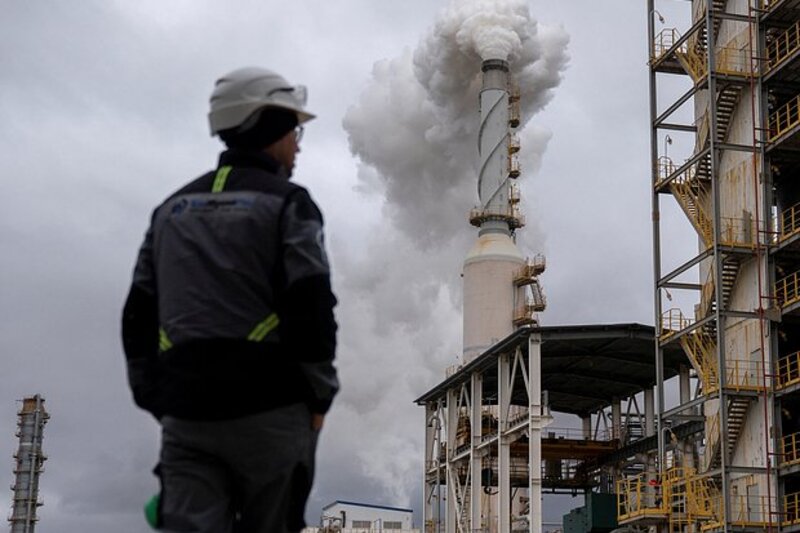Gold prices hit 2-week high as Trump-Fed feud escalates with Cook firing
Investing.com-- Oil prices edged lower in Asian trading on Monday, extending last week’s slight decline, as weaker-than-expected U.S. economic data raised concerns about softer oil demand, while investors weighed the potential implications of a Russia-Ukraine peace agreement.
Brent Oil Futures fell 0.3% to $74.24 per barrel as of 20:43 ET (01:43 GMT), while West Texas Intermediate (WTI) crude futures lost 0.4% to trade at $69.97 per barrel.
Both contracts inched lower last week, with sharp losses on Friday. Oil had gained earlier in the prior week due to a series of supply disruptions, but the rally faded on Friday as investors weighed the implications of a peace agreement between Russia and Ukraine.
"Trade and tariff concerns, along with a push for a peace deal between Russia and Ukraine, will weigh somewhat on the market," ING analysts said in a note.
Weak US data sparks demand concerns
Recent U.S. economic indicators have raised concerns about a potential slowdown, negatively impacting oil prices.
Friday’s data showed that Services PMI fell to 50.4 in February 2025, down from 52.7 in January, indicating minimal growth in the private sector.
Additionally, the University of Michigan’s consumer sentiment index dropped to 64.7 in February, a 15-month low, as households grew increasingly worried about proposed tariffs and rising inflation.
These developments suggest a deceleration in economic activity, leading to expectations of reduced energy demand and contributing to the recent decline in oil prices.
Meanwhile, the U.S. is actively trying to mediate peace negotiations between Russia and Ukraine, aiming to resolve the ongoing conflict that has significantly impacted global energy markets.
Recent discussions have involved high-level meetings, including U.S. President Donald Trump’s engagement with international leaders to facilitate dialogue.
However, Ukrainian President Volodymyr Zelenskyy has expressed concerns about the negotiations, emphasizing the necessity of Ukraine’s direct involvement in any peace agreement.
A successful peace agreement could lead to the lifting or easing of sanctions imposed on Russian energy exports, potentially increasing the global oil supply.
Additionally, the re-entry of Russian gas into the European market may lead to lower natural gas prices and alter the competitive landscape for LNG suppliers.
Supply disruptions cap losses
Oil had risen last week as the Caspian Pipeline Consortium (CPC), a major route for Kazakh oil exports, had reported reduced flows by 30-40% after a Ukrainian drone hit Russia’s Kropotkinskaya pumping station.
Adding to the supply concerns, recent media reports indicated that OPEC producer group and its allies, OPEC+, are considering postponing its planned oil production increases, intensifying concerns about potential supply disruptions in the global market.
Originally, the group had scheduled to begin monthly output hikes in April 2025; however, deliberations are underway to delay these increments.
"Any delay would lead to a change in the oil balance, leaving the market relatively tighter than we expected. Any delay would also likely not go down well with President Trump, who’s calling on OPEC+ to increase supply," ING analysts said.
